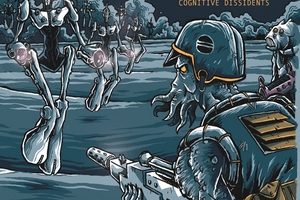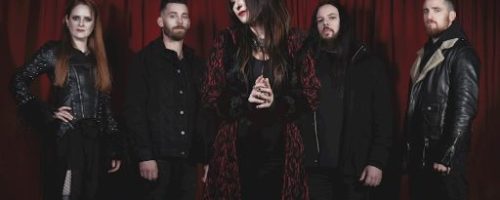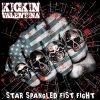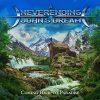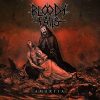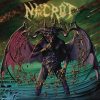Valence – Instrumental Dissidents
Tuesday, 23rd April 2019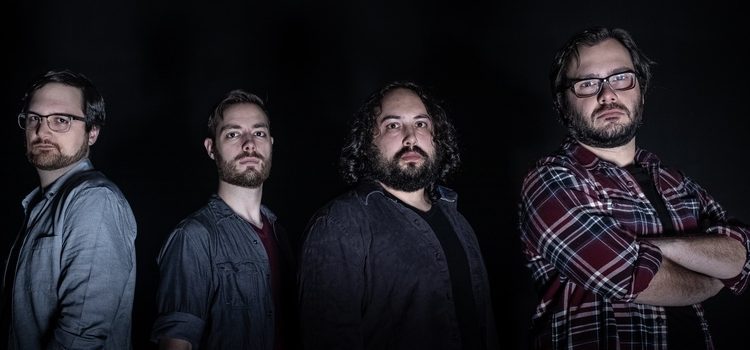
Sometimes there’s a disconnect that causes music fans to not be interested in instrumental music. Some view it as lacking structure, or the band at hand is more concerned with technicality rather than songwriting. But for whatever reason, the barrier is there. But more and more bands have popped up in more recent years that are actively trying to break it down. Valence has recently brought about their first full-length, Cognitive Dissidents, following up on an earlier EP. Combining heady prog with some moments of catchiness and groove, it has what instrumental fanatics crave, while giving more casual listeners plenty to dive in and enjoy. Guitarist (and viola/violinist) Michael Buonanno gave us a few minutes of his time to chat about their new album, what’s most important to them in writing, and what he enjoys about instrumental music.
Dead Rhetoric: Any reason for the time lapse between the EP and Cognitive Dissidents?
Michael Buonanno: We had a different bass player during that album cycle. We toured with Laser Baron and he wanted to move onto other things. It took a little bit of time to find a new bass player. So that was a bit of a hurdle for us. We were starting to write a lot of the material for the album then, and as that all happened, it got put on the backburner. We had to tackle that all over again once our new bass player, Wilhelmus [Sapanaro] came in. We are so happy with him – he’s such an incredible player and it’s been really easy to write with him. He has a lot of musical knowledge. You don’t have to spoon-feed notes to him or ask what he needs to do. We were all for that – we were ready to experiment and see where these new ideas went. It was a perfect fit.
Dead Rhetoric: So how does Cognitive Dissidents compare to your previous EP, Laser Baron?
Buonanno: I would say we grew up a lot [laughs]. It wasn’t about putting parts together. It’s still a concept album. There is a story that you can get the impression of. It’s not only that we grew up and write more together, but these riffs and ideas had a lot of time to be worked on. With that time and the energy we put into it, it blossomed into almost a different genre even though we are still in the instrumental genre. It took our songwriting to the next level.
Dead Rhetoric: It’s mentioned that there are chord progressions and melodies used throughout the album – do you see those as a way to support those with a keen ear in addition to tying things altogether?
Buonanno: As we were writing the album, it was important for us to bring some themes back in different ways. It wasn’t just about a riff and expanding on it, and developing it. It was more that we wanted to bring a couple of ideas back in different ways. We felt that in certain songs, these ideas were important to include. It is very classical, and there are a lot of shared progressions throughout the entire album.
Melodically-speaking, I would say that there are a handful of repeated phrases that are played in different ways, different time signatures, and different keys. It was important to bring these ideas back, and for us, it was about letting those ideas shine in different ways. Going back to it being a concept album, it has those shared characteristics from song to song, so that when the listener does get through the album, they can understand how it all ties together.
Dead Rhetoric: How do you toe the line between shred and melody?
Buonanno: I think it’s a little bit different for all of us, when we were tackling it and writing it. It’s important for us to give a groove and a bit of a hook. It was important for us to develop these sections and put them together. It was really important to get people to headbang in one part, sing-a-long in another, even though we don’t have vocals, at the hook or the chorus. We do incorporate those in our songwriting, even if it’s not apparent, there’s a verse-chorus element in maybe a couple of different verses – a breakdown and development of those ideas before we get back into the hook again.
But sometimes we just want to punch you in the face with a real heavy 4/4 riff and just groove and headbang. But then we want to break out of it and give you something that you don’t quite expect but still fits really well with the ideas so that you can come in and out of the melodic ideas with these rhythmic and heavy ideas – whether they are really note-y or simple – it’s important for us to have a good sense of melody and be sing-able to a degree, yet still have something that rocks out for all the listeners. Whether we are in an odd time signature or no, I want you to be able to bang your head to our music.
Dead Rhetoric: What did recording all of the instruments in-studio, as opposed to using samples, add to the album’s sound?
Buonanno: The way we approached the album was really important. We are in a world where everyone is using digital sounds, samples, and backing tracks. We wanted the album to be as organic as possible. We wanted to approach it almost like a ‘70s prog project: we wanted true amp sounds, we didn’t want sound replacement – there is a little bit here and there just to keep things consistent. But in terms of the violins and violas in particular, we knew that we wanted to bring some of these melody ideas to our instruments. Will plays stand up bass – he went to school for that and did classical and jazz. He gives cello lessons and there’s a similar technique especially in the right bow arm.
We wanted to bring things that we felt strongly about in our musical developments and incorporate it into the album. For me, being a viola player, which is weird because I really care about inside parts, harmony, and counter-point, and I play a bit of violin in a similar technique. So when we were talking about if we wanted to use keyboards and have more modern sounds versus an organic, real-feel based thing for us, it was a no-brainer. We wanted to let real instruments shine on this album.
Dead Rhetoric: What’s most important to you when you are sitting down to write a track?
Buonanno: I’ll go back to what I was saying before – strong grooves, cohesive ideas, and a good sense of melody. We want people to sing along, even though it’s not the most sing-able music. But you’d be surprised. We’ll get a whole crowd chanting the main melody or chorus riff in “The Walrus,” it’s cool – we cut out and then we go back into it. I love that, and I think we all get that cool, warm feeling of the hair standing up on your arm when that happens.
When we made this album, we wanted to really connect with our audience more than we have in the past, and I think that is the big thing in this album. You’ll catch it from song to song. There are melodies that are more sing-able than others, there are choruses that are more triumphant. There are things that people can hone in on after they are done with the album, and that’s what we really wanted. The album should stick with you when you are finished listening to it. It’s a lot to digest, but we are really stoked when we do have those people who kind of sing along with us.
Dead Rhetoric: That’s really cool, and admittedly, a lot more challenging for an instrumental band than a vocal-driven one.
Buonanno: We like to kind of touch a few different genres, and without making it seem like we are playing all these genres in one song. It’s hard to keep a song cohesive, but instrumentally, without a vocalist how do we keep something interesting? By keeping some melodies, again things are a little different, but how do we keep that cohesive and relatable? That’s super important.
Dead Rhetoric: What is the mission statement of Valence?
Buonanno: What we all want out of this band, is to bring instrumental music, in varieties and different genres, keeping it cohesive and having our audience rock out and sing along and have fun. Our music is serious, but what it is about is having fun. That headbanging moment is important. The sing along moment is important. But I want people to have fun listening to us. That’s really what it is all about. I want people to be able to enjoy this music, whether it’s background music, driving music, if they are doing their laundry, or having guests over. I want them to be able to come to a show and throw down like they were listening in their home.
I want our music to be well-received and fun, no matter where it goes and how it is listened to. There are a lot of listeners that are prog-snobby in a way, there are some punk rock fans, and metal guys that will listen to us and say that we aren’t metal enough, and there are jam-heads that have been waiting for something heavier. Bringing all those listeners into one room and having that one thing that they can relate to is everything to us. We have been able to bring these communities together and being able to relate and have a good time.
Dead Rhetoric: Are you looking to stay independent or trying to find a record label?
Buonanno: We have been shopping labels. In fact, before the change-over between bass players, we were doing a big push there. I think this album has a more forward and larger statement. We are pitching some stuff right now; we’d love to have some sort of backing. DIY, doing all of this has been a lot of work and it has paid off big time. We are stoked to be at the level we are at right now. But having that next step up and having people help us with booking/distribution, it would take it even further. We would love to work with a label.
Dead Rhetoric: What do you like about instrumental music?
Buonanno: I like that I can listen to it pretty much at any point. Also being a classical nerd and playing viola at school – doing ensemble and orchestra, stuff like that, it’s something that has stuck with me. Doing classical and jazz stuff, it’s something that we are all in the same department on. It’s a thing that I love seeing – communication between different parts. A song not being about one person, but the songwriting. Its call and response. It’s about the songs developing all together. When you are listening to a more vocal-centric band, it’s all about the singing/lyrics and the verse-chorus. In instrumental music, you can still have those melodic ideas, but you don’t need to be so connected to the lyrics, or sing along to a very specific thing.
In instrumental music, the smallest mistake can lead to a change in how it is performed and listened to. I really love seeing a band that is writing very fixed ideas, but are able to play with those ideas in a live setting. That’s cool for us, in that we want to implement some improv. Not everything is exactly the same, not every tempo is exactly what is on the album. We want to be as close to it in practice, but there are differences that we want to expand and do some other things. I like seeing bands like that, with some improv and see something unexpected. Otherwise it gets boring after a while. There are jam bands that play heavy music, and are doing improv and doing it pretty damn well. We are trying to put more of that into our songs. There’s nothing better than hearing a song with something a little bit different each time. It almost makes it more special in a way.
Dead Rhetoric: What plans do you have once the album is released?
Buonanno: Our plan is to tour. We want to heavily tour this summer. We have a nice, week-long run at the end of April, a bunch of one-offs in May, and we are literally in the middle of booking for the summer. We have some really cool show opportunities that we can’t share yet, but we are trying to hit the mid-west – go down and follow the Mississippi River and go down towards Austin, Texas. Unfortunately, we missed South By [Southwest] this year. We want to do the whole loop of going further into the States – there’s nothing better than playing live for a new audience. We are really stoked about that.
Since we have been sitting on a lot of this material, we are also simultaneously writing new stuff already and working on the next thing. It’s in the same realm of what Cognitive Dissidents is, but we are experimenting more. There’s more improv, more pop elements, more jazz elements. We are really excited for the next thing as well. There’s nothing we love more than playing music for ourselves and other people. We are stoked to continue sharing what we love.











